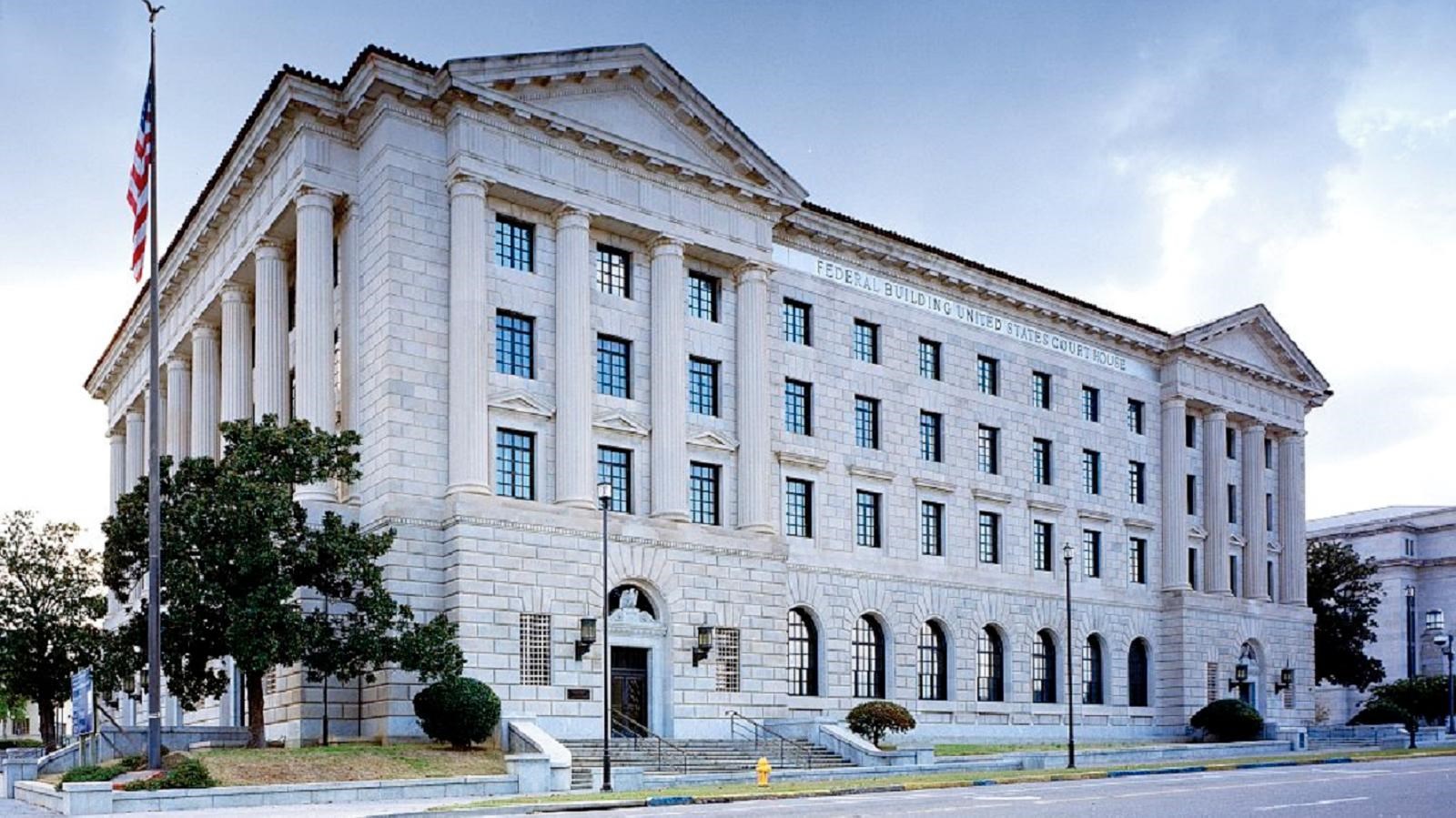Last updated: August 20, 2022
Place
Alabama: U.S. Post Office and Courthouse Montgomery

By Carol M. Highsmith - Library of Congress Prints & Photos Online Catalog, Public Domain, https://c
Thanks to a courageous and insightful federal judge--Frank M. Johnson, Jr.--this Montgomery, Alabama, courthouse became one of few official buildings in the South where civil rights claims could receive an impartial hearing and be won. In 1955, President Eisenhower appointed the 37-year-old Johnson to the U.S. District Court. The next year, following the Montgomery bus boycott, he ruled against segregated city buses. In later actions, he was the first judge to order names of qualified African Americans added to county voting rolls, and he wrote the first statewide school desegregation decree. He outlawed discrimination in Alabama's libraries, transportation centers, and agricultural extension service. He placed numerous state agencies under judicial review. After brutal beatings of Freedom Riders at Montgomery's Greyhound Terminal, he temporarily restrained the city and the Klan from future wrongs against the protestors.
He helped strike down literacy tests and other unfair practices when he ordered voting registrars to apply consistent standards. One of Johnson's major accomplishments was his opening of U.S. Route 80 for the Selma-to-Montgomery March. After watching the CBS footage of "Bloody Sunday," he ruled that the right of assembly--in this case, the right to march--far outweighed the right to unobstructed sidewalks and highways. The enormity of the wrongs being protested should be the deciding factor, he said. Johnson's decisions put him at great risk. His mother's home was bombed and a cross burned in his yard. Often he and his family needed overnight protection. His actions also won the ire of law school classmate Governor George Wallace, who branded Johnson an "integrating, scalawagging, carpetbagging liar." In 1977, President Carter asked Johnson to head the FBI, but the judge refused for medical reasons. Instead, he accepted a 1979 appointment to the Fifth Circuit Court of Appeals. Johnson's decisions then and earlier not only affected civil rights, they also influenced most of the public policy in the state. In 1993, Judge Johnson was the second recipient (after Thurgood Marshall) of the American Bar Association's Thurgood Marshall Award for his work for civil rights. In 1995, President Clinton awarded Judge Johnson the Presidential Medal of Freedom, the country's highest civilian award. President Clinton remarked that, "during 40 years on the bench, Judge Johnson made it his mission to see to it justice was done within the framework of law.
In the face of unremitting social and political pressure to uphold the traditions of oppression and neglect in his native South, never once did he yield. His landmark decisions in the areas of desegregation, voting rights and civil liberties transformed our understanding of the Constitution."
Visit the National Park Service We Shall Overcome travel itinerary to learn more about the civil rights movement themes and histories. Also, be sure to check out Civil Rights subject site.
